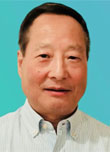I Outsource, Reluctantly

By Louis Garguilo, Chief Editor, Outsourced Pharma

“I’ve worked with CROs and CDMOs since 2000,” says an outwardly jovial Jin-an Jiao, Vice President, Process and Analytical Development, Synthekine, a developer of CAR T therapies and biologics. “That's 24 years already!”
His apparent mirth, though, masks a complication: Generally speaking, Jiao is a reluctant outsourcer.
At prior companies, he’s advised management to at least retain development capabilities – particularly analytical method development. In one case, he advocated for his biotech to own its own manufacturing facility. In fact, it did end up purchasing one.
Nonetheless, over the years he has had to morph into an outsourcing professional, and today he’s genuinely enthused to relay his best practices.
Outsourcing CAR T And Biologics

Garcia had resolved the structures and elucidated the structure-function relationships of multiple cytokines and their receptors. Leveraging that research and years of development experience, Synthekine was founded in 2019.
Today it has a differentiated pipeline of specific, selective and potent cytokine therapeutics and cell therapies against a wide range of cancers.
Jiao joined Synthekine in June 2022 to oversee process and analytic development for the biotech’s cell-therapy and biologics programs.
Before that, he’d accumulated decades of experience in roles at some half-dozen biopharma organizations. He focused on development of protein therapeutics, particularly downstream purification methods, formulation and stability studies, and analytical assay development.
Synthekine has a lab capable of handling research and some development, but no manufacturing capability.
“Before I joined,” Jiao says, “Synthekine progressed two products that are recombinant cytokine IL2 proteins and CAR T cells. We contracted the process and analytic development, plus the phase one manufacture, at a European CDMO for biologics product, and at a CDMO located in the U.S. for cell therapy product.”
Since he joined the organization, for new products the biotech stays in-house for most activities of process and test method development, but, Jiao admits at times, “we outsource everything from preclinical studies and some analytic development, and always all manufacturing needs.”
The company has two candidates in Phase 1, and as you can see here, candidates in preclinical, with two of those partnered by Sanofi and Merck.
A CAR T In Every Pipeline
A focus of the Synthekine platform is the IL-2 cytokine, one of the first recombinant cytokine proteins approved by FDA to treat kidney cancer.
The challenge with IL-2 is its high toxicity. Synthekine is attempting mutations of the IL-2 to keep its immune stimulating activity but reducing side effects.
“That's a major part of our platform for our biologics program,” Jiao says. Synthekine is also working on IL-12 and IL-10 projects using the same approach.
A component of the IL-2 product is produced by E coli, and a CDMO has performed the initial transformation, E. coli strain selection, and fermentation process development.
“If you understand the E. coli expression,” he says, “most of the protein is produced in the inclusion body. Our external partner had to isolate the inclusion body, solubilize the target protein, refold and then purify the protein.”
Regarding Synthekine’s CAR T programs, on the other hand, Jiao performs more activities in-house.
“Everybody seems to be working on CAR T,” he says. "However, although it is effective in treating cancers, that efficacy is only about 50%. The major reason is that CAR T cells can only stay in the body for certain periods of time before they disappear, and tumor-killing activity is lost.”
Therefore, Synthekine is looking to manufacture CAR T cells expressing a mutated human orthogonal IL-2R beta (hoRb), which binds specifically to a mutated IL-2, designated as STK-009. This innovative CAR T technology maintains persistence of CAR T cells in patient’s body when STK-009 is administered after CAR T cell treatment.
“The beauty of this innovate approach is we can keep the CAR T cell concentration relatively high in a patient’s body to effectively target and kill tumor cells.”
“We do use two CDMOs for this project," Jiao explains.
"One to manufacture STK-009 (an IL-2 mutant) which is classified as biologics, and a second CDMO to manufacture SYNCAR-001 (CAR T cells expressing CAR targeting CD19 and also expressing a mutated IL-2 receptor beta which only binds STK-009)."
He continues:
“Remember, this is a cytokine – a very potent protein. The dosage level is like one hundred times less than a traditional monoclonal antibody product. We didn't need a lot of proteins," he explains.
"In term of clinical dosage, we only give between three mg per patient or perhaps as high as 10 mg per patient." For a monoclonal antibody, he adds for comparison, it can be as high as 10 milligram per kilogram body weight.
“You can think about a patient with a 80 kilogram body weight; they need several hundred mgs for mAb products. We only need a few mgs for our cytokine product.
"So in terms of the manufacturer scale, we are relatively small compared with a traditional monoclonal antibody product.”
Too Small For Some CDMO?
I ask Jiao if his relatively minor processing needs limit the number of CDMOs who want to work with him?
“No. Actually, we have too many people who want to work with us for our potential thousand liter needs!" he says with his acquired mirth at outsourcing.
Is it, then, difficult to select among his many suitors?
“Well, we’ll decide on who to work with in terms of these qualities: brand name and reputation; timelines; always quality; and then cost.”
Among such selection factors, he's experienced that one of them can demonstrate large variances.
“For example, on a certain amount of work, among several CDMOs, there was a 2-3 times difference in their quoted prices. That comes to millions of dollars in difference.”
Jiao says in these cases, the lowest price is not always suspect, with concerns, perhaps, the CDMO is missing something.
He says he's worked with the low-cost CDMO in the past with excellent results.
Rather, it’s that highest estimate that reinitiates his inherent outsourcing hesitations.
In part two Jiao will provide detailed and strict analysis of a number of outsourcing adventures he's experienced ... so you won't have to.
